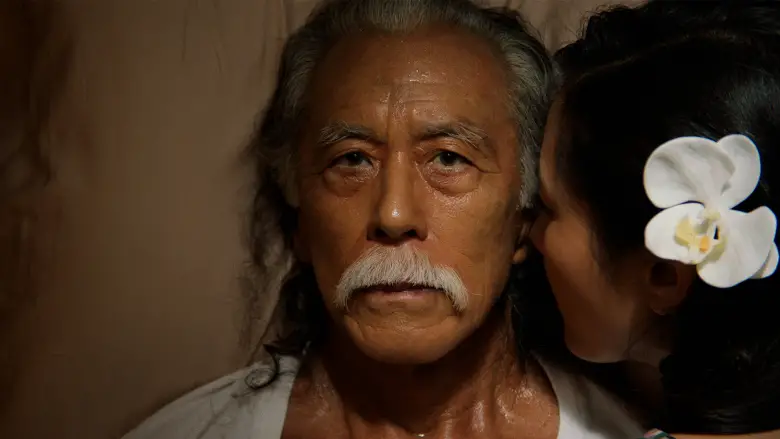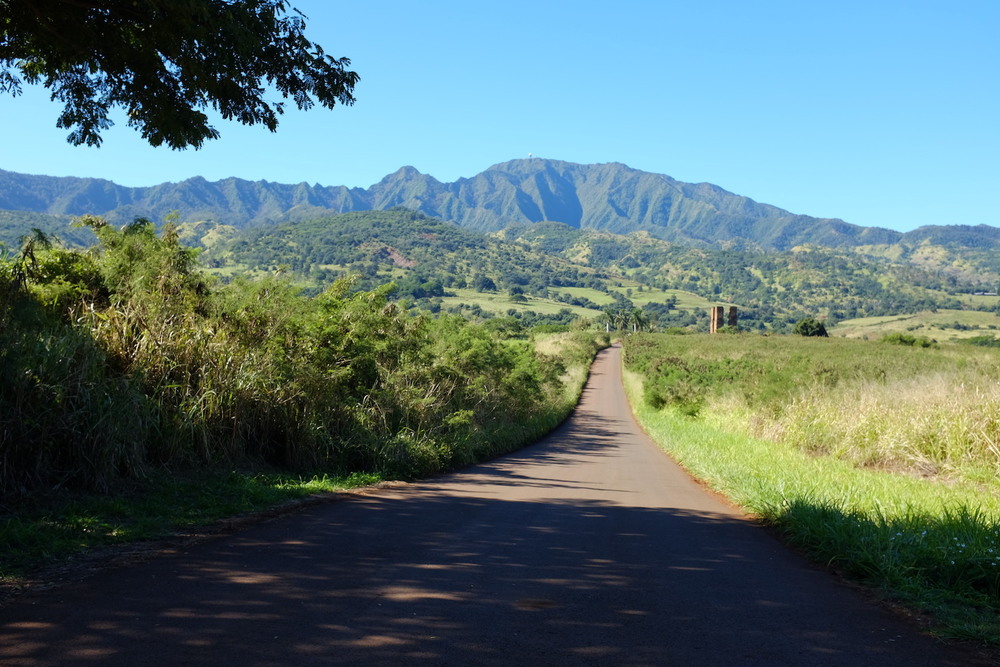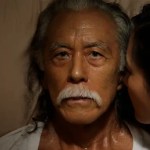Sundance 2021: ‘I Was a Simple Man’ Movie Review

I Was a Simple Man joins Sundance 2021 as part of the US Dramatic Competition. It is an American story about various generations living in Hawai’i and the ghosts from the past that must be faced. Director Christopher Makoto Yogi calls Honolulu, Hawai’i his home, which fuels the setting and vivid atmosphere of the film. His debut feature film, August at Akiko’s, had its world premiere at International Film Festival Rotterdam. He is also no stranger to Sundance, having participated in their Directors and Screenwriters Lab.
Masao Matsuyoshi (Steve Iwamoto) faces his imminent death throughout the entirety of the film. It flows like a book with multiple chapters in the form of people either living or visiting from the beyond. Yogi takes the audience through the life of a man facing an illness. He also presents the loss experienced by all those who surround him. The film wanders through multiple time periods. This includes pre-World War II to Hawai’i statehood and then to the gentrification of the present day.
READ: Sundance 2021: ‘Luzzu’ Movie Review
One of the most notable visitations is that of Masao’s wife Grace (Constance Wu) who passed away early on in their marriage. This left Masao a widow unclear on how to move forward with this life. As a result, he poisons his relationship with his children, pushing them away. When he nears his end, Grace comes back into his life, fueling the film with an eerie uneasiness.
Yogi’s poetically unconventional feature explores the feeling that surrounds us when death is near. The island itself is a character that welcomes all to experience it visually through pleasing cinematography and unique camera blocking. Sung Rok Choi, Alex Zhang Hungtai, and Pierre Guerineau also bring life to the film through sound mixing and composition. The wind chills your bones. The ringing of the bells draws your attention in. The sound of the waves crashing on the shore transport you.
When Masao is healthy, everything surrounding him thrives, but when he is falling prey to his sickness, the plants wither and die, the flames burn ablaze, and the house deteriorates. Many of the scenic views are reminiscent of the universal understanding of island life from those that suffer from the reality of colonial oppression. Yogi explores the political aspects by mentioning the status of Hawai’i once it became a state. However, while it does touch on the politics of imperialism, the film itself is not political. It is about the human condition and generational, familial trauma.
Where the film ultimately fails is its pacing. It runs at a sluggish rhythm often losing itself in the ethereal nature of its story. Despite this, Yogi attributed the film’s stillness to a personal preference of his. He is an admirer of the Taiwanese New Wave which contributes to the involvement of spirituality within the story. The cast described him as having treated the film like a seance, allowing the project itself to let him know what was meant to be said and how it was meant to be told. Then, to fully appreciate the topics explored within the film, the stillness might seem necessary. Unfortunately, giving it the possibility to move the way it does makes it easy to become disinterested, feeling as though the film lacks a proper structure.
Paradise isn’t always beautiful. There’s suffering, oppression, displacement, and erasure. Sometimes it’s truly haunting and terrifying, but in the end, it is still a home. Yogi truly understands this, and I Was a Simple Man ensnares this reality for all to witness.
Rating: 6/10
I Was a Simple Man is pending a wide release date. For more Sundance 2021 coverage, keep an eye on our Twitter page and this site!




